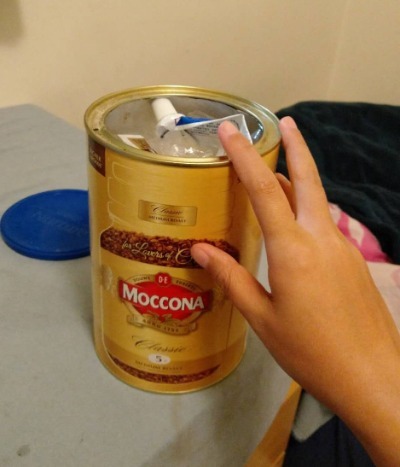 |
|
Her solid waste barely fills an empty coffee can after she carried out a "one-year zero waste challenge" from July last year. [Photo provided to China Daily] |
She spends 2,100 yuan ($319) a month on rent for her shared flat in Christchurch and almost everything she owns has been salvaged or handmade.
Apart from spending less than 15 yuan on a cabbage and a leek in 2016 the week she arrived in New Zealand, she hasn't spent a penny on vegetables or fruit. After she researched and consulted with local people about what is edible and what is not, she forages in the nearby woods, collecting plants to cook at home.
She also grows vegetables and tomatoes in her backyard, and makes compost at home using food scraps and yard waste. She even makes wine at home.
She goes fishing at the beach as well. "Following the tide and current, I know when it is a good time for fishing," Ding says and smiles.
Her goal, she says, is that one day she can live a totally self-sufficient lifestyle with no requirement for money.
Although freeganism is still a new concept in China and official figures are hard to come by, the idea of reducing waste has been welcomed by environmentalists and governments.
In an August speech announcing the "Clean Plate 2.0" campaign, President Xi Jinping emphasized thriftiness and China's commitment to drastically reducing food wastage. Back in 2013, Xi raised the issue in public and highlighted the importance of food wastage reduction, resulting in the first "Clean Your Plate" campaign.
Last year, Shanghai took the lead in enhancing public awareness about environmental protection by introducing garbage classification at home, followed by Beijing and many other cities this year. By next year most of the Chinese cities are expected to introduce garbage classification.